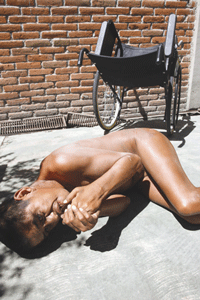Mentally and physically disabled children and adults in Mexico continue to live in abusive and squalid conditions in many orphanages and mental health facilities throughout the country. A report on Nov. 30 by Disability Rights International, working with the Mexican Commission for the Defense and Promotion of Human Rights, indicates that not much has changed in Mexico 10 years after a Mexican commission for the rights of cognitively and physically challenged people conducted a similar survey.
Throughout 2009 investigators visited 20 institutions and found that children and adults existed in squalid environments redolent of feces, urine and dirty sheets. They were also subjected to physical abuse. According to the report, a man and a woman who were found tied to wheelchairs in the previous survey 10 years ago were found again tied to their wheelchairs in the recent inspection.
In another facility, two women who had grown up in the institution were found working there without pay. Staff members could not explain why the women were there at all. Similarly at a girls’ institution, staff members could not provide the names or ages of patients or even the reason why some of them were there. Investigators discovered that lobotomies were not uncommon for the treatment of aggressive behavior. One institution acknowledged that it had performed four over the past few years, even though this procedure has been largely discarded in developed countries.
Children in Mexican institutions have been especially at risk. In the new report, government officials admitted there was no registry and no method for tracking children, leaving them potential victims of human trafficking and forced labor. A grandmother in Mexico City was unable to locate her granddaughter after she was placed in foster care at age 6 in 2005. The grandmother had been granted custody three years ago, but the child’s whereabouts remain unknown, and investigators believe she has probably been trafficked. Eric Rosenthal, director of Disability Rights International, said, “Only in Mexico have I encountered a system so lacking in protections that children literally disappear.”
Ironically, together with many other countries, Mexico ratified the 2006 U.N. Convention on the Rights of Persons with Disabilities. And yet the Mexican Commission that wrote the original report in 2000 has said that current violations in Mexico are still “as serious as any this organization has documented before.” Disability Rights International’s new report makes clear the failure of the state to enforce existing regulations, and it recommends that the government place more emphasis on community-based services for children and more independent oversight of institutions for the disabled.








